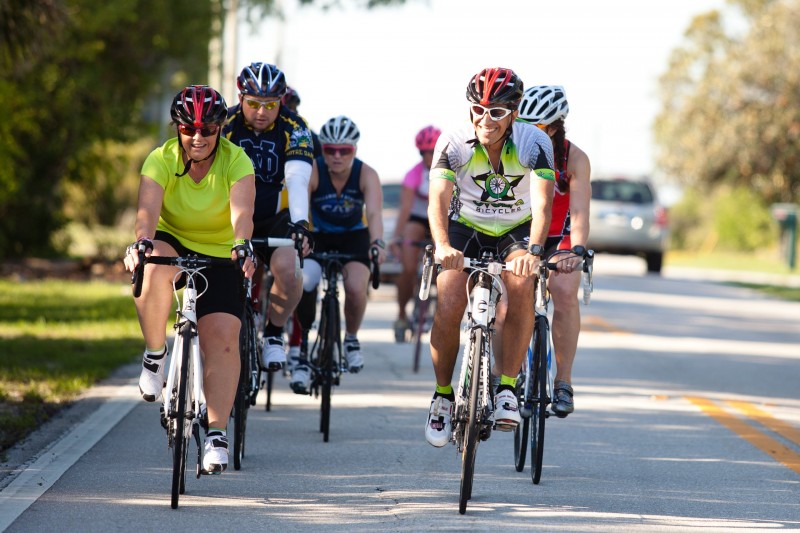For the eighth year in a row, Washington was named the most bicycle-friendly state in the country, while others like Massachusetts and Utah rose in the ranks thanks to policies and infrastructure funding strategies that encourage people to get on bicycles.
The League of American Bicyclists released its annual Bicycle Friendly State ranking on Monday to kick off the first day of National Bike to Work Week. The rankings are based on surveys completed by state transportation departments and bicycling advocates that assess progress in five categories (PDF): legislation and enforcement, policies and programs, infrastructure and funding, education and encouragement, and evaluation and planning.
Washington — where avid cyclist Gov. Jay Inslee just proclaimed May to be Bike Month — held onto the top spot through dedicated funding for bicycling infrastructure and programs. Several state-sponsored initiatives and awareness campaigns emphasize the rights of cyclists, and a vulnerable user law imposes stricter punishments on negligent drivers who injure cyclists.
Bike-friendly Minnesota (PDF) was runner-up for the second year for meeting much of the same criteria. It’s also one of 25 states that has enacted a safe-passing law requiring drivers to maintain a distance of at least 3 feet when passing a cyclist.
President Andy Clarke said the league was encouraged to see “measurable progress and improvement in many states, citing Massachusetts, Pennsylvania and Utah as examples of states that have made gains through state-funded projects related to cycling infrastructure.
“We hope to see continued improvements as more statewide leaders recognize and invest in the many benefits bicycling has to offer,” Clarke said in a statement.
Massachusetts (PDF) jumped six spots from No. 10 in 2014 to No. 4 in 2015, thanks in part to a transportation bond bill that set aside more than $400 million over the next five years for biking and walking projects, the League said. Bill H.4046 designates $377.2 million for the design, construction and repair of pedestrian, bicycle and multi-use pathways. Another $50 million will fund Complete Streets projects, which encourages community-based strategies to designing accessible streets for pedestrians, motorists, cyclists and transit riders. Another $230 million in authorizations will fund path, roadway and bridge projects as part of the state’s GreenDOT Initiative, according to advocacy group MassBike.
Pennsylvania (PDF) also moved up the ranks from No. 19 to No. 12 thanks to new programs and policies backed by infrastructure funding. The state passed Act 89 in 2013, a comprehensive transportation funding plan that includes $84 million in investments for public transportation, freight and aviation. At least $2 million will be directed specifically to biking and walking projects, the Bike League said.
Utah (PDF) also rose from No. 8 in 2014 to No. 5 this year thanks to developments in policies, infrastructure and education, the Bike League said. The state adopted a Bicycle Master Plan in 2014, which sets goals across several state agencies for supporting biking and walking infrastructure in transportation projects.
The complete rankings follow:
1. Washington
2. Minnesota
3. Delaware
4. Massachusetts
5. Utah
6. Oregon
7. Colorado
8. California
9. Wisconsin
10. Maryland
11. New Jersey
12. Pennsylvania
13. Virginia
14. Illinois
15. Maine
16. Ohio
17. Vermont
18. Michigan
19. Arizona
20. Tennessee
21. Idaho
22. Connecticut
23. North Carolina
24. Florida
25. Georgia
26. Rhode Island
27. New Hampshire
28. Iowa
29. New York
30. Texas
31. Nevada
32. Mississippi
33. Louisiana
34. Missouri
35. Wyoming
36. Arkansas
37. Indiana
38. South Dakota
39. North Dakota
40. New Mexico
41. Alaska
42. West Virginia
43. Hawaii
44. South Carolina
45. Oklahoma
46. Montana
47. Nebraska
48. Kansas
49. Kentucky
50. Alabama
